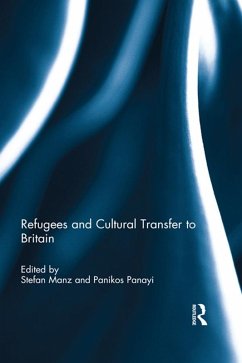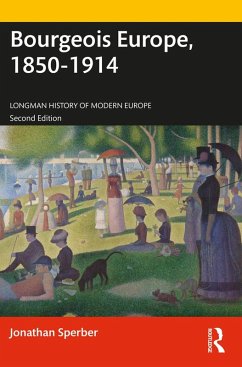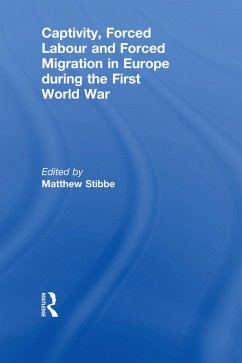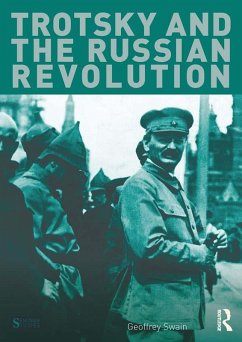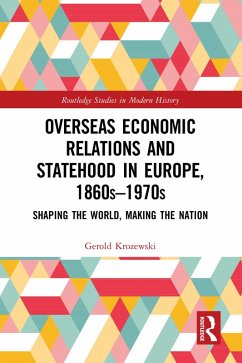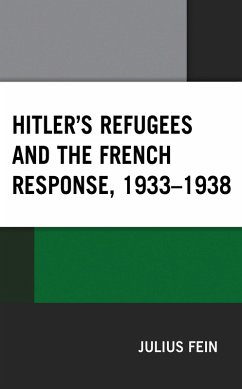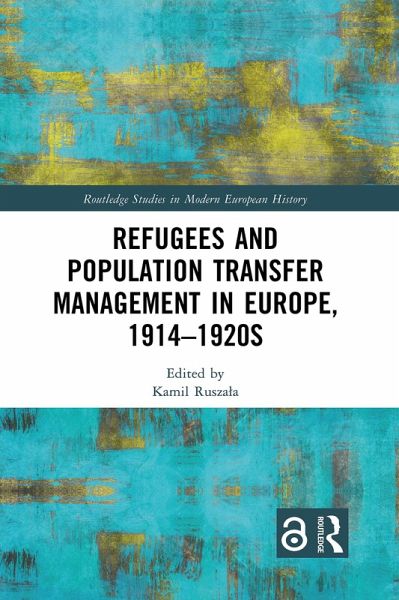
Refugees and Population Transfer Management in Europe, 1914-1920s (eBook, ePUB)
Versandkostenfrei!
Sofort per Download lieferbar
42,95 €
inkl. MwSt.
Weitere Ausgaben:

PAYBACK Punkte
21 °P sammeln!
This book provides a comprehensive study of refugee movements and population transfers across Europe during the First World War and the early postwar period.Drawing parallels with contemporary migration issues, the book serves a social and educational purpose by highlighting Europe's history of migration and emphasizing the relevance of past experiences to current challenges. It seeks to enhance understanding, raise social awareness, and contribute to the broader discourse on war refugeeism by applying historical insights to address contemporary migration crises.The authors discuss how issues ...
This book provides a comprehensive study of refugee movements and population transfers across Europe during the First World War and the early postwar period.
Drawing parallels with contemporary migration issues, the book serves a social and educational purpose by highlighting Europe's history of migration and emphasizing the relevance of past experiences to current challenges. It seeks to enhance understanding, raise social awareness, and contribute to the broader discourse on war refugeeism by applying historical insights to address contemporary migration crises.
The authors discuss how issues of refugee movements and population transfers were addressed in different contexts and reflect on refugees as both war-induced migrants and political tools for authorities. The book covers a range of topics including humanitarian systems during the war and the early postwar period, refugee locations, policy influence, national issues, self-organization, and aid for refugees, as well as immigration control in time after bordering the postimperial Europe. It also addresses the composition of populations in postwar reconstruction processes and its population dynamics.
This volume will be of value to those interested in modern European history, social and political history.
Drawing parallels with contemporary migration issues, the book serves a social and educational purpose by highlighting Europe's history of migration and emphasizing the relevance of past experiences to current challenges. It seeks to enhance understanding, raise social awareness, and contribute to the broader discourse on war refugeeism by applying historical insights to address contemporary migration crises.
The authors discuss how issues of refugee movements and population transfers were addressed in different contexts and reflect on refugees as both war-induced migrants and political tools for authorities. The book covers a range of topics including humanitarian systems during the war and the early postwar period, refugee locations, policy influence, national issues, self-organization, and aid for refugees, as well as immigration control in time after bordering the postimperial Europe. It also addresses the composition of populations in postwar reconstruction processes and its population dynamics.
This volume will be of value to those interested in modern European history, social and political history.
Dieser Download kann aus rechtlichen Gründen nur mit Rechnungsadresse in A, B, BG, CY, CZ, D, DK, EW, E, FIN, F, GR, HR, H, IRL, I, LT, L, LR, M, NL, PL, P, R, S, SLO, SK ausgeliefert werden.





